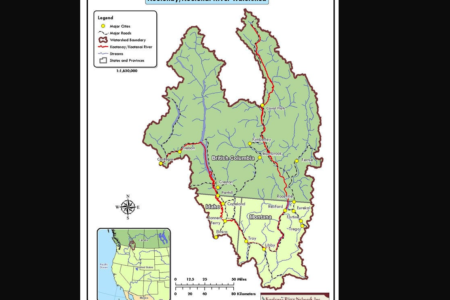Feds sued over failure to protect killer whales
Conservation groups, represented by Ecojustice, are back in Federal Court today after launching a lawsuit against Canada’s Department of Fisheries and Oceans (DFO) over the protection of B.C.’s resident killer whales.
If successful, the case will ensure stronger legal protection for all of Canada’s endangered species.
The coalition, made up of nine leading environmental groups, alleges that DFO failed to legally protect all aspects of critical habitat for southern and northern resident killer whales. Critical habitat is defined as the habitat endangered or threatened species need to survive and recover.
The government’s own science shows that for resident killer whales, critical habitat is more than just a place on a map – it includes clean and quiet marine waters and available salmon, their primary food source.
“There is no ‘later’ for these whales,” said Margot Venton, Ecojustice staff lawyer. “Our killer whales need legal protection of their critical habitat. They can’t live in a polluted ocean without fish.”
In 2008, DFO issued an unlawful protection statement that sought to safeguard habitat using voluntary guidelines and non-binding laws and policies. In 2009, Ottawa issued an order for resident killer whale critical habitat protection. The order however, fails to address the biological aspects of critical habitat, including water quality, noise pollution and declining salmon stocks. The coalition alleges that the government has unlawfully interpreted its own law and breached the terms of the Species At Risk Act.
The resident killer whales are made up of two distinct populations that live in B.C. waters year-round. The southern resident killer whales are listed as “endangered” with about 85 members remaining, while approximately 235 “threatened” northern residents survive. Both species are listed under Canada’s Species At Risk Act, which requires DFO to create plans for their recovery and protection.
Ecojustice represents David Suzuki Foundation, Dogwood Initiative, Environmental Defence, Greenpeace, Georgia Strait Alliance, International Fund for Animal Welfare, Raincoast Conservation, Sierra Club of BC, and the Wilderness Committee in this lawsuit, which has implications for the more than 400 endangered and threatened species listed under the Species At Risk Act.
Proceedings are expected to last five days, and will take place June 15-18 and June 22.






















